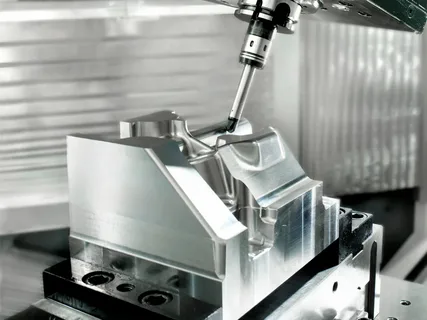CNC machining, or computer numerical control machining, is a pivotal technology in the manufacturing sector. It utilizes pre-programmed computer software to control the movement of tools and machines, which provides high precision and versatility in producing complex parts. In industries where precision is crucial, such as the medical device industry, CNC machining plays an indispensable role. This article delves into the various ways in which CNC machining has impacted the medical device industry, highlighting the benefits, challenges, and future potential of this technology in manufacturing medical devices.
The Role of CNC Machining in Medical Device Manufacturing
CNC machining has become a cornerstone in medical device manufacturing due to its ability to produce parts with exceptional precision and repeatability. Medical devices require parts that meet stringent quality standards, as they directly affect patient safety and health. CNC machining is highly suited for producing components such as implants, surgical tools, diagnostic equipment, and prosthetics, all of which demand intricate design and tight tolerances.
Moreover, CNC machining is highly versatile, enabling the production of a wide range of materials, including metals, plastics, and ceramics. This flexibility allows manufacturers to create diverse medical devices tailored to specific patient needs or clinical applications. The ability to switch between different materials without compromising precision makes CNC machining an invaluable tool for the medical device sector.
Enhancing Precision and Quality in Medical Devices
One of the primary advantages of CNC machining in the medical device industry is its ability to achieve high precision and consistent quality. In medical device manufacturing, the smallest deviation from the desired dimensions can have significant consequences on the device’s performance and safety. CNC machines are capable of producing parts with extremely tight tolerances, often within a few microns, which is crucial for ensuring that medical devices function correctly.
In addition to precision, CNC machining also enhances the quality of medical devices by reducing human error. Traditional machining methods often rely on manual labor, which can introduce inconsistencies in production. CNC machining, on the other hand, is fully automated and based on computer instructions, which ensures uniformity in the manufacturing process. This automation minimizes the risk of defects and guarantees that each part meets the required specifications, ultimately leading to safer and more reliable medical devices.
The Cost-Effectiveness of CNC Machining for Medical Devices
While CNC machining may initially appear to be a more expensive manufacturing option compared to traditional methods, its long-term cost-effectiveness becomes apparent when considering the production of medical devices. The high initial setup costs for CNC machines are offset by their efficiency and precision, which reduce material waste and production time. Since CNC machining can produce intricate parts with minimal adjustments and setup, manufacturers can reduce labor costs and expedite the production process.
Moreover, CNC machining is well-suited for both small and large-scale production runs. For the medical device industry, which often requires small batches of highly customized parts, CNC machining offers an ideal solution. The ability to quickly adapt to different production requirements without compromising quality or precision allows manufacturers to meet the unique needs of the medical sector while keeping costs in check. Over time, this contributes to greater profitability for manufacturers, even when producing complex, high-precision devices.
Overcoming Challenges in CNC Machining for Medical Devices
Despite the numerous benefits, there are certain challenges that manufacturers face when using CNC machining for medical device production. One of the main challenges is the complexity of designing and programming CNC machines for highly specialized medical components. These devices often require intricate geometries, such as curved surfaces and precise interlocking parts, which can be difficult to achieve without sophisticated software and highly skilled operators.
Additionally, the materials used in medical devices can be challenging to machine. Certain biocompatible materials, such as titanium or certain polymers, may require specialized cutting tools or machining techniques to prevent damage to the material. This can increase production costs and complexity. However, as CNC machining technology continues to advance, solutions to these challenges are emerging. Manufacturers are constantly developing new techniques and tools to improve the efficiency of CNC machining when working with medical-grade materials, ensuring that the industry continues to benefit from this technology.
The Future of CNC Machining in the Medical Device Industry
As technology evolves, the role of CNC machining in the medical device industry will only become more integral. The increasing demand for personalized and customized medical devices, such as implants tailored to individual patients, is driving the need for more flexible and efficient manufacturing processes. CNC machining is uniquely positioned to meet these demands, offering the precision required for custom designs while maintaining scalability for larger production runs.
The future of CNC machining in the medical device industry also lies in the integration of advanced technologies such as artificial intelligence (AI) and machine learning. These innovations will allow for even greater automation, reducing production times, and improving the adaptability of CNC machines. Additionally, the development of more advanced materials for medical devices, combined with improved CNC machining techniques, will likely lead to even more efficient and precise production methods. As a result, the medical device industry will continue to evolve, with CNC machining playing a central role in the development of cutting-edge, patient-centric healthcare solutions.
Conclusion
CNC machining has had a profound impact on the medical device industry by enhancing precision, reducing production costs, and enabling the creation of complex, high-quality components. Despite some challenges, the technology has proven to be a reliable and versatile manufacturing solution for producing medical devices that meet the stringent demands of the healthcare sector. With ongoing advancements in CNC technology and the continued integration of artificial intelligence and advanced materials, the future of CNC machining in the medical device industry looks promising, offering exciting possibilities for improved patient care and innovative medical solutions.



